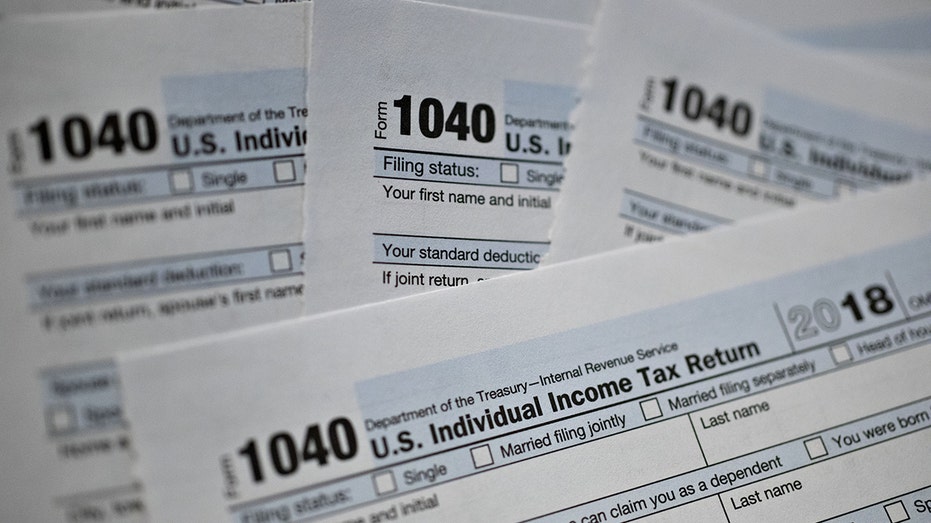What is Tax Day? Everything you need to do about the deadline to file your taxes
Tax Day falls annually on April 15, unless date falls on weekend or holiday
How would tax increases impact Americans?
Judy Shelton and Grover Norquist discuss the amount of U.S. debt under President Biden and the impending increase in taxes after Trump-era tax cuts expire on "The Evening Edit."
Tax Day is quickly nearing, meaning the clock is winding down for Americans to file their returns.
You can file your taxes electronically or by mail. Submitting electronically will make for the faster receipt of a refund and is the quickest way to get your information filed to the Internal Revenue Service (IRS). If you do file by mail, make sure your envelope is postmarked by the due date.
Make sure you have all your documentation together and submit it before the filing deadline to avoid any fees.

Tax Day traditionally falls on April 15. (iStock)
ALL ABOUT TAX REFUNDS: TIPS FOR RECEIVING YOUR REFUND FAST
Here's everything you need to know about Tax Day.
1. What is Tax Day?
Tax Day marks when taxes are due in the United States. Taxes must be filed and paid by this date.
If you don't pay your taxes on time, you'll receive a Failure to File penalty from the IRS. This penalty is 5% of unpaid taxes for each month or part of a month that the return is late, according to the IRS, not exceeding 25% of unpaid taxes.

To avoid fees, make sure your return is filed and taxes are paid by Tax Day. (iStock)
2. When is Tax Day?
Typically, it falls on April 15, although it could fluctuate slightly from year to year. The main reason the date could change is if April 15 falls on a holiday or on a weekend.
A STEP-BY-STEP GUIDE ON FILING YOUR TAXES WITHOUT A CPA
This year, April 15 is Tax Day for Americans, except for those in Maine or Massachusetts. Residents in those two states have a tax deadline of April 17, due to Patriots' Day and Emancipation Day holidays, according to the IRS.
3. When did Tax Day begin?
The first time federal income tax was introduced to Americans was in 1862 by Abraham Lincoln, according to the IRS, in order to help pay for expenses associated with the Civil War. The first official Tax Day was in 1913 and had a March 1 due date, according to the Library of Congress.
In 1954, the filing deadline for individual tax returns was marked on April 15, according to the IRS, which has remained the modern deadline.
The push in the date helps tax filers by giving them extra time to gather financial information but also helps others in the tax filing process. Accountants receive additional time to help others file their taxes, and the IRS also has more time to work.
4. What do I do if I miss the tax deadline?
If you are unable to get your taxes filed by Tax Day, you can apply for a tax extension.

If you can't get your taxes in by the deadline, you can file for an extension. (Daniel Acker / Bloomberg / File / Getty Images)
You must file your request by Tax Day in order to be granted an extension. You can request an extension through Oct. 15, according to the IRS.
GET FOX BUSINESS ON THE GO BY CLICKING HERE
You can file an extension with Form 4868, according to the IRS. You can do this by mail, online or through a tax professional.
